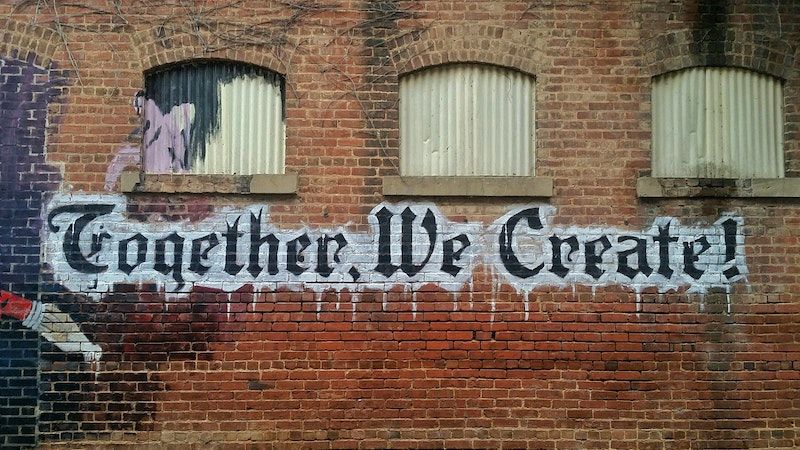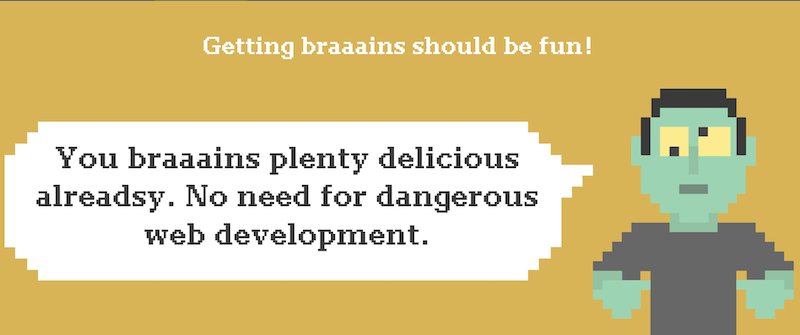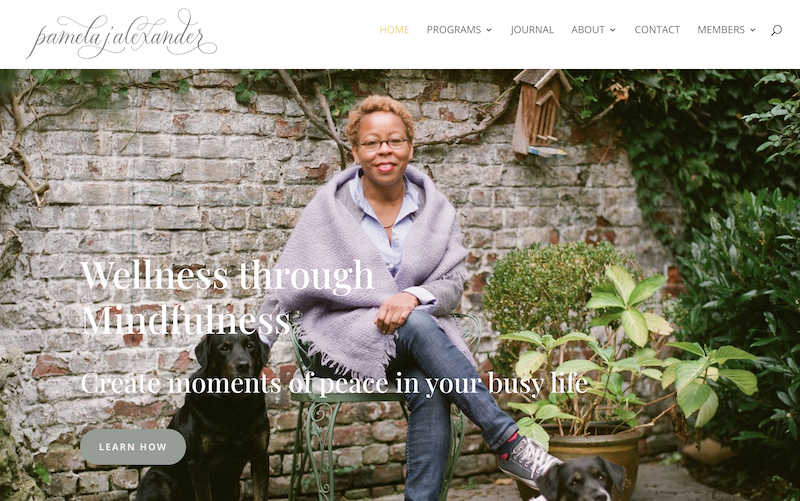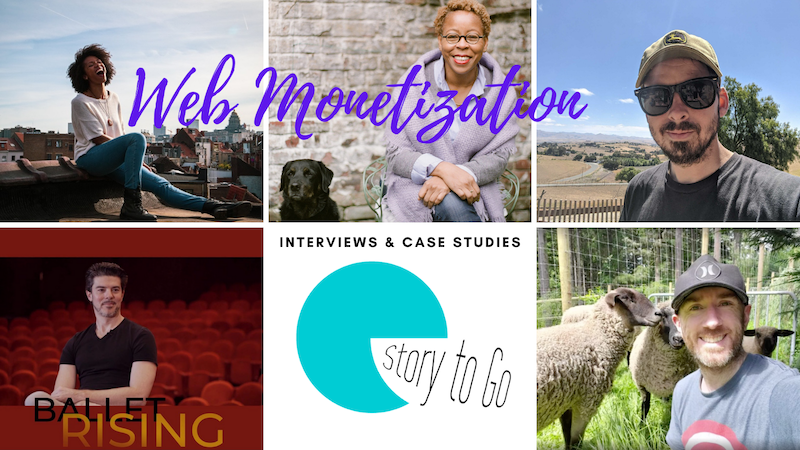This time last year we were in the middle of our first open call for proposals, transitioning from an idea to a real program. We wanted to be making grants in the world, we wanted to be managing projects, and we wanted to be building community.
We wanted to be making grants in the world, managing projects, and building community.
~ CHRIS LAWRENCE, Senior Program Manager, Grant for the Web
Looking back, we are pleased to be doing just that! It’s been quite the journey, and what we’ve learned has shaped our new open call for proposals, which focuses on practical activity to catalyze Interledger-driven and web monetized business models that seek to expand financial inclusion on the web.
Photo Care of 'My Life Through a Lens' on UnSplash.
All of what has been achieved thus far is thanks to our applicants, awardees, Executive Council, and partners, who agreed to be a part of the journey with us. We have eternal gratitude for all of you for being willing to get skinned knees, plow through speed bumps, endure frustrations, and make the mistakes that come with building new technology, ecosystems, and communities. Your successes are astounding! We are proud of what you have all accomplished, and of how the community is growing and collaborating together.
We have witnessed the experiences and discoveries shared in the Web Monetization Community this past year, and are excited to enter into our next phase of funding that will focus on addressing some of the issues and challenges that our community is currently facing. This means supporting dynamic, diverse, and successful content and creators, who embrace Interledger-driven business models for the web and offer different value propositions than traditional web business models.
Lessons Learned
Broad Open Call for Proposals Work
The most successful thing we did this past year was our open call for proposals (CFP), as it created varied entry points, leading to a diverse array of projects and awardees. Being broad, slightly vague, and open to weird and wild ideas that were willing to fail led to success in ways that we couldn’t have predicted. While we are setting four categories of funding in our current CFP, there are varied possibilities for how applicants can meet the targeted goals.
Being broad, slightly vague, and open to weird and wild ideas that were willing to fail, led to success in ways that we couldn’t have predicted.
~ ERIKA DRUSHKA, Senior Program Manager, Grant for the Web
We certainly never expected to be learning web development from zombies, but we did, thanks to The Undead Institute.
A broad open call for proposals also led to projects that don’t typically pitch an innovative tech funding pipeline for all sorts of reasons, including gender, race, and geography. Beyond these demographics, this also lead to the development of projects that have not traditionally been part of privileged web subcultures or content areas (such as technology, music, food, travel, and pets), including projects that involved the fine arts, dance, and mindfulness. We loved the entrepreneurial spirit these projects brought to the community and hope our current open call encourages an equally eclectic group of proposals.
Pamela Alexander building Wellness through Mindfulness with her Grant for the Web project.
Now It’s Time to Go Even Broader!
The first CFP was an important education on how our grantmaking program can better include people and communities who have been historically marginalized in technology and structurally excluded from financial opportunities. In 2021, we began to mandate that all funded projects have a Diversity, Equity and Inclusion (DEI) component, which can manifest itself in one of three ways:
- The lead applicant is a person of color or the team represents a diverse group of people.
- The output of the team benefits communities that have been historically underrepresented.
- Funds explicitly earmarked to address increasing participation of historically marginalized and underrepresented communities.
As a program we are exploring how to connect to more communities so that access, support, and funding reach people who can not only benefit, but make our collective work stronger. Thus, we are encouraging applications that are both led by and include a diverse set of people and perspectives. The Interledger Foundation team is far from being familiar with knowing all the spaces, communities, people, and organizations that might be interested in this CFP. We need connected community members to help spread, post, and discuss this opportunity. If you’re able to connect us to possible receptive audiences, please send us an email. We are looking for people willing to mentor potential applicants (more on that soon).
Technical Support Must be More Robust
Without having a technical coworker on our internal team, we struggled to frame what was possible in our first CFP. It was sometimes too science fiction as we all learned what was possible and what was not. We could have saved everybody some frustration had we been aware of what was technically feasible at the start and defined this for all. Without this, we created challenges and funded projects that were premature given the technology. This resulted in projects needing to be re-scoped and awardees arriving at disappointing conclusions.
Happily, Alex Lakatos has now joined the Interledger Foundation as our Technology Lead. This is important as there are currently only a handful of people in the world that really understand the technology at an engineering and implementation level, and nearly all of them work for Coil. While we have had access to these people, it’s too burdensome for Coil to carry all of the water. We need to build on this network of technical leaders through our tech scholars program, our grantmaking, and our community.
We understand that for the Web Monetization ecosystem to thrive we need continued development of documentation, code examples, widgets, add-ons, and other tools. We are creating a category targeted to these technical resources in this new CFP. The focus will be on building the infrastructure that will advance the capabilities of Web Monetization, building on existing projects rather than duplicating them, advancing the development of the tech stack, and contributing to a larger Interledger and Web Monetization knowledge base.
We're lowering the barriers to entry into the Interledger ecosystem by developing documentation, tools and resources for developers.
~ ALEX LAKATOS, Technology Lead at Interledger Foundation
What This Means for the Next Call for Proposals
More Research is Needed
One of the impactful elements of our grantmaking thus far has been the research outputs generated. Projects like The Effect of Monetization Visibility on User Behaviour have published some interesting and thorough research, and often projects that had research as a smaller portion of their proposal ended up making the space for the research to take on a life of its own. For those interested in learning from this research, StoryToGo is compiling it together on a page dedicated to Web Monetization Research.
Data collected by Vivid IoV Labs in their Web Monetization 2021 UX Report.
This research is valuable because it helps to identify what the challenges are with the Interledger Protocol and the Web Monetization Standard, and what the ecosystem needs to flourish. Collectively we can get caught up in big and exciting ideas, future casting scenarios like a poster of ‘Cities of Tomorrow’ with flying cars and teleportation pods. Research allows us to pause and look at the incremental steps needed. The Interledger Protocol and the Web Monetization Standard are young technologies that need more development and we are excited to help fund the thought leadership that the ecosystem will need. For these reasons, research will be its own distinct category in the next Open Call for Proposals.
Prototypes Help Shape What’s Possible
The various prototypes and proof-of-concepts that came out of our early grantmaking have helped us to understand what is possible, identify the current limitations of the technology, and begin to map out solutions that are needed in order to grow the ecosystem. Awardees have begun to recognize the problems that their prototypes solve and where their constraints lie. In the case of Abhinav Chawla, this meant recognizing that rather than marketing Project Insulate as an alternate browser extension to Coil’s version, it might be more productive to integrate this technology into the Coil Extension as a solution to protecting user data and identity. Many of these prototypes, along with other Web Monetization Resources, can be found in StoryToGo’s Web Monetization Resource Library. This library is meant to be a living resource, so please send them your Web Monetization Resources to add, as you create them.
Case Studies for Content that Integrates Web Monetization
Case studies that demonstrate different ways in which content creators and platform builders integrate Web Monetization will help to model for potential adopters of Web Monetization what is possible and encourage creative approaches to new web business models. To date we’ve seen Web Monetization used to sustain the maintenance of open educational content, incentivize additional content, unlock new endings to stories, access online courses, make content advertisement free, donate to real world experiences, bypass room occupancy limits, collect premium avatars, and share Web Monetized earnings between creators. Discover and learn from case studies in this database of Web Monetization Interviews and Case Studies that StoryToGo is compiling. We encourage further creative approaches to utilizing Web Monetization to create sustainable, project-specific funding solutions in our new CFP.
Engaging the Public on Why Web Monetization Matters
Both our own observations and overwhelming feedback from the community have shown a need for more education in helping potential users (both creators and Web Monetization subscribers) understand what Web Monetization is, and why it is important in creating a healthier, more equitable digital world. Many of our awardees in the past year have begun to take this piece on, like the digital zine created by the Decentralization off the Shelf team. StoryToGo is also compiling a library of the Web Monetization Tutorials that the community is creating for ease of access to all.
A digital zine created by the Decentralization off the Shelf team.
Some of the difficulties in getting people to adopt Web Monetization could also be resolved by more streamlined systems for signing up for Web Monetization solutions. While the Web Monetization community may be comfortable with cryptocurrencies, digital wallets, payment pointers, and tipping via XUMM, these are alien to much of society and can be scary to implement. In fact, some of our awardees, including gFam, were met with skepticism and fear that Web Monetization was a scam due to these elements. This is further complicated by there being multiple steps and platforms to sign up on in order to make Web Monetization and digital tipping possible. Education into digital literacy of the different aspects of Web Monetization, from trusted entities in the various communities that could benefit from Web Monetization, will help to overcome these fears, as will creating more streamlined systems with solutions, like Rafiki.
Given this, advocacy and education is a category of its own in this CFP with a focus on proposals that help the community grow, make Web Monetization more digestible, and invite new players to the ecosystem.
As we become more thoughtful in our funding strategy, all of us – the awardees, our internal team, and some of the bigger players in the technology ecosystem are all taking a step back and querying, “How do we scope the growth?” Just like in an orchard, we need to determine how we prune a little bit to see where there is going to be movement and energy. We ourselves need to be an agile and responsive funding mechanism towards that. Our future work will zero in on what the ecosystem needs.
Thanks for being a part of this journey and ecosystem building with us!
Note: This blog post was crafted with loving care, labor and contribution from Erica Hargreave










Top comments (4)
This is such a great post! I really hope everyone gets to read it to see what the community has accomplished so far (which is amazing) but also just how much work needs to be done in both the technical and education spaces.
Great writeup, thanks for sharing! It's cool to see the program evolves and adapts given the feedback from participants and grantees - everybody will benefit from working together.
Props to GftW team for putting this together. Indeed A LOT still has to be done.
We are a niche, but that's how really interesting development starts. Would love to put some of the research together for the next proposal.
A great summary to wrap up the first set of proposals. Also, thanks for plugging in my project in it, haha! Looking forward to the next round of exploration with Web Monetization.